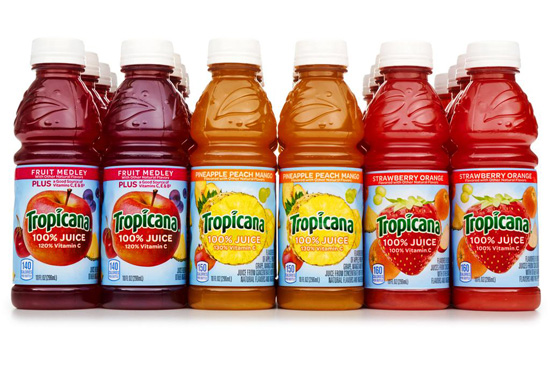Juice is usually considered healthy because the juice is natural and has the word "fruit", which is understandable, but many people are unaware that the juice has a high sugar content. In fact, juice contains as much sugar and calories as sugary soft drinks, sometimes even more. A small amount of vitamins and antioxidants in the juice does not make up for the large amount of sugar. Juice doesn't always look like that.
The juice you find in the supermarket may not be what you think. Even if it is labeled "100% pure" and "non-concentrate". After being squeezed out of the fruit, the juice is normal. However, to enter the supermarket for sale, it is generally stored in a large number of tanks with high oxygen consumption, and the storage time is up to one year before being packaged. The main problem with this method is that it tends to remove most of the flavor, so the manufacturer needs to add a so-called "flavor package" to the juice to restore the lost flavor. So even if you buy the best quality juices in the supermarket, they are still far from their original state.
Some of the lowest quality even can't be compared to freshly squeezed juice. They are basically just fruity syrup. Juice contains vitamins, minerals and antioxidants, but lack fiber and are rich in sugar. Take a look at the 12 ounce (350 ml) segment of Coca Cola and Apple Juice:
Coca-Cola: 140 calories and 40 grams of sugar (10 teaspoons)
Apple juice: 165 calories and 39 grams of sugar (9.8 teaspoons)
Although most studies use sugar or fructose-based beverages, there is no reason to think that 100% juice will be different. The sugar molecules are the same, and even our liver can't tell the difference.
However, some studies have shown that drinking more juice can cause some diseases due to high sugar content. For example, one month, drinking 480 ml (16 ounces) of grape juice every day for 3 months will cause insulin resistance and increased waist circumference.

In another study, drinking two or more juice a day would more than double the risk of gout in women, and fluid calories were the only fat. Different foods have different effects on hunger, hormones, and the brain center that controls weight through different metabolic pathways. The brain is responsible for regulating energy balance. When we add food to our diet, our brains will “compensate” and let us eat less. For example, if we start eating 2 boiled potatoes a day, we will subconsciously reduce the intake of other foods so that our total calorie intake does not increase too much.
But liquid calories work differently than calories in solid foods. When people add liquid calories to their diet, such as apple juice, they can't replace them by eating less. This is why sugary drinks are one of the most prevalent foods that are currently fat. They don't make us feel full and can't make us eat more comprehensive. A study of children shows that drinking sugary drinks a day increases the risk of obesity by 60%.
Several studies have shown that juice is associated with an increased risk of obesity and diabetes, while whole fruit is associated with reduced risk. Therefore, people are advised to eat more whole fruits, but do not drink juice regularly. In this way, you can get the natural fiber, antioxidants, vitamins and minerals in the fruit.
In general, a small amount of drinking juice may be possible for some people, but one needs to realize that despite a healthy aura, the juice is very similar to sugary soda. The most important thing is that your liver can't tell the difference. All the harmful effects of sugary drinks also apply to juices.




